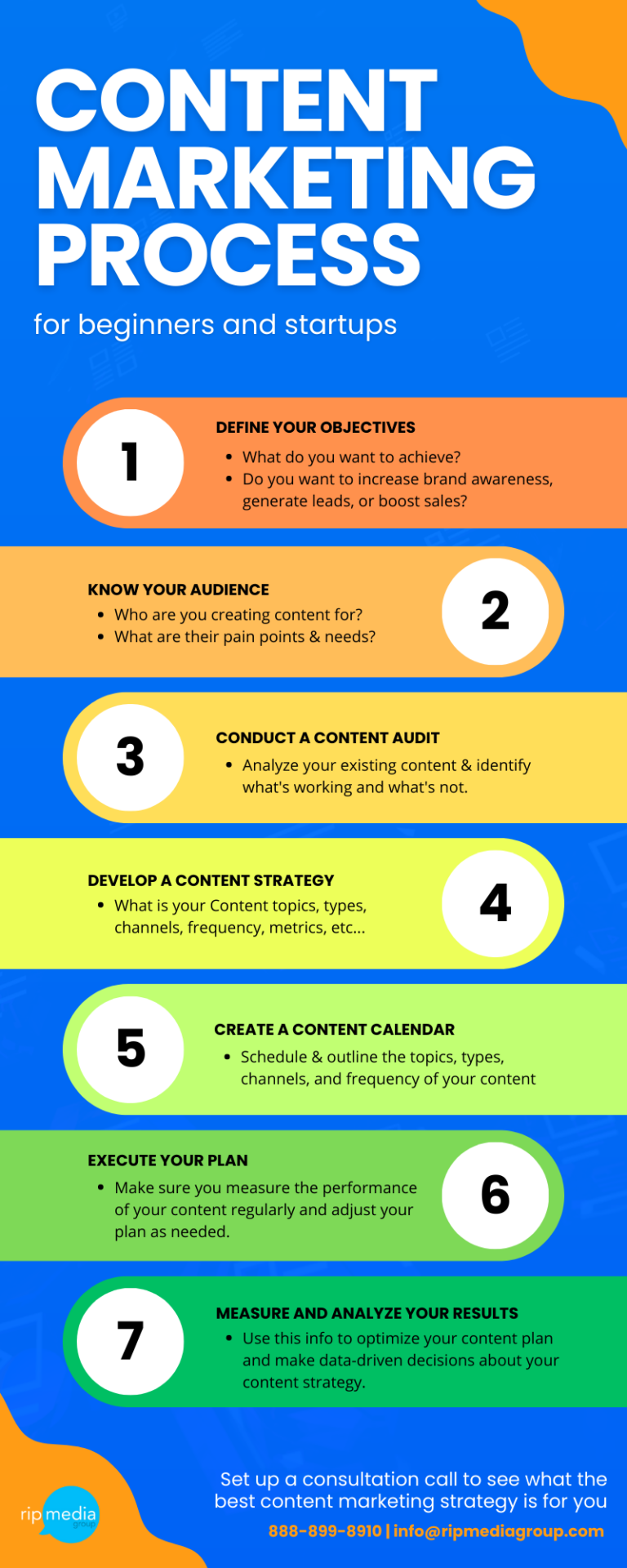Content marketing has become an essential part of every business’s marketing strategy. According to a report by Content Marketing Institute, 91% of B2B marketers use content marketing to reach customers.
The same report revealed that 84% of the most successful B2B marketers have a documented content marketing strategy. So, it’s clear that having a content marketing plan is crucial for the success of your business.
In this article, we will explore how to create a content marketing plan that delivers results.
Content Marketing Plan vs. Content Marketing Strategy
Before we dive into the details, let’s clarify the difference between a content marketing plan and a content marketing strategy. Although these terms are often used interchangeably, they are different.
A content marketing strategy is a high-level approach that outlines the goals, audience, messaging, and channels for your content. It’s a long-term plan that sets the direction for your content marketing efforts.
A content marketing plan, on the other hand, is a more detailed, tactical document that outlines the specific content pieces, timelines, and resources required to execute the content marketing strategy.
So, when creating a content marketing plan, it’s essential to have a well-defined content marketing strategy that outlines your goals and objectives. Once you have a content marketing strategy in place, you can start building a detailed content marketing plan to support your strategy.

Here are the steps to follow when creating a content marketing plan:
Step 1: Define Your Objectives
The first step in creating a content marketing plan is to define your objectives. What do you want to achieve through your content marketing efforts? Do you want to increase brand awareness, generate leads, or boost sales? Your objectives should be specific, measurable, achievable, relevant, and time-bound (SMART).
Step 2: Know Your Audience
The next step is to know your audience. Who are you creating content for? What are their pain points, challenges, and needs? By understanding your audience, you can create content that resonates with them, addresses their challenges, and provides value.
Step 3: Conduct a Content Audit
Before you start creating new content, it’s essential to conduct a content audit. A content audit involves analyzing your existing content to identify what’s working and what’s not. This analysis will help you identify the gaps in your content, areas for improvement, and opportunities for optimization.
Step 4: Develop a Content Strategy
Based on your objectives, audience, and content audit, you can start developing a content strategy. Your content strategy should include the following:
- Content topics: Based on your audience’s needs and pain points, identify the topics that you will cover in your content.
- Content types: Choose the types of content that will resonate with your audience, such as blog posts, videos, infographics, or podcasts.
- Content channels: Identify the channels where you will distribute your content, such as social media, email, or your website.
- Content frequency: Determine how often you will publish new content.
- Content tone and voice: Define your brand’s tone and voice, so your content is consistent and reflects your brand’s personality.
- Content metrics: Identify the metrics that you will use to measure the success of your content marketing efforts.
Step 5: Create a Content Calendar
Once you have your content strategy in place, it’s time to create a content calendar. A content calendar is a schedule that outlines the topics, types, channels, and frequency of your content. It helps you plan and organize your content production and ensures that you are publishing new content consistently.
Step 6: Execute Your Plan
With your content calendar in place, it’s time to start executing your content marketing plan. This involves creating new content, optimizing your existing content, and distributing your content through your chosen channels. Make sure you measure the performance of your content regularly and adjust your plan as needed.
Step 7: Measure and Analyze Your Results
The final step in creating a content marketing plan that delivers results is to measure and analyze your performance regularly. This will help you understand what’s working and what’s not, and identify areas for improvement.
The metrics you track will depend on your objectives, but some common metrics to consider include website traffic, social media engagement, email open and click-through rates, lead generation, and sales.
Once you have collected data on your content marketing efforts, analyze the results to identify trends and insights. Use this information to optimize your content marketing plan and make data-driven decisions about your content strategy.
How Our Creative Agency Can Help
Creating a content marketing plan can be time-consuming and requires a lot of expertise. If you don’t have the resources or expertise to create a content marketing plan, consider working with a creative agency.
A creative agency can help you with every aspect of your content marketing, from defining your objectives to executing your plan. They can help you create a content strategy, develop a content calendar, and produce high-quality content that resonates with your audience.
In addition, a creative agency can help you track and analyze your performance and adjust your content marketing plan as needed to achieve your objectives. This can help you save time and resources while delivering better results from your content marketing efforts.
Let’s sum it up:
Creating a content marketing plan is essential for the success of your business. By following these steps, you can develop a content marketing plan that delivers results. Remember to define your objectives, know your audience, conduct a content audit, develop a content strategy, create a content calendar, execute your plan, and measure and analyze your results.
If you need help with your content marketing, consider working with a creative agency. They can provide the expertise and resources you need to create a successful content marketing strategy and plan that drives results. With a well-executed content marketing plan, you can generate more leads, increase brand awareness, and boost sales for your business.